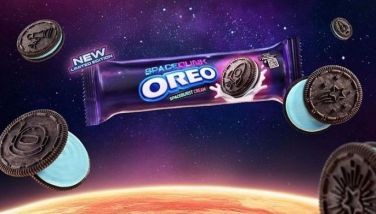AI and marketing

AI here, AI there, AI everywhere. AI is everywhere—but the real challenges in marketing aren’t about AI. They come from human behavior, cultural shifts and a crowded media landscape. In my conversations with business leaders, the biggest struggle isn’t technology—it’s how to capture attention in an ever-changing, noisy world.
I interact with business leaders across industries, from executives to entrepreneurs and the real struggles in marketing today have little to do with AI itself. Instead, they stem from how people consume content, the speed of cultural shifts and the increasing difficulty of standing out in a noisy world.
I used AI and came up with the following inference.
It is an old story on Marketing with a little new twist:
A professor explained marketing to MBA students:
1. You see a gorgeous girl at a party. You approach her and say, “I am rich; marry me.” That’s direct marketing.
2. You attend a party, and your friend goes to the girl to tell her, “He’s rich. Marry him.” That’s advertising.
3. The same girl at the party walks to you and says, “You’re wealthy; do you want to marry me? That’s brand recognition.
4. You say, “I’m rich. Marry me,” and she introduces you to her husband. That’s the demand and supply gap.
5. Before you say, “I’m rich. Marry me,” your wife arrives.
That’s a restriction from entering a new market.
So, what is the function of marketing?
The core job of marketing is creating customers—but getting attention has never been harder. Consumers are now creating their own content, consuming ad-free experiences, niche communities and selective social feeds, making traditional big-budget campaigns less effective.
This interesting piece from marketing guru Mark Schaeffer sheds a little light on the current state of marketing.
Schaeffer says: Brands now thrive on quick, culturally relevant “campfires”—small, agile marketing moments tied to music, fashion, sports and viral trends. In today’s world, relevance trumps reach—a single meme or trending TikTok can outperform and impact more than a multimillion-dollar campaign.
Once upon a time, consumers saw and heard the same messages on TV and radio. Today, many live in a digital bubble, avoiding ads through streaming, ad blockers and private online communities. If they’re not watching, does your brand even exist to them?
One way brands break through this isolation is by building communities, not just selling products.
Successful brands don’t just market to customers; they create spaces where people want to belong.
Let’s start with a quiz:
• Word-of-mouth marketing is the most trusted form of marketing.
• Brand communities create strong customer loyalty.
• Experiential marketing fosters deep emotional connections.
So, how much of your marketing budget is spent on these? Hope it is not close to zero.
Most businesses still rely on traditional advertising, even though consumer behavior has changed. Many ad agencies resist new marketing strategies because they don’t fit their outdated playbooks. But sticking to old methods in a new world is a fast track to irrelevance.
A brand used to be what a company said it was. Now, a brand is what people say it is—and one viral post can change everything overnight.
A century ago, a scandal or rumor might spread only within a small town. Today, a single tweet or deepfake video can reach millions in hours. Social media doesn’t just give opinions a voice—it amplifies them, sometimes in ways that destroy brand reputations instantly.
One brand manager said: “Influencers are everything.”
It’s an extreme statement, but not far from the truth. Influencers cut through ad fatigue, bypass algorithms and command loyal audiences who trust them more than traditional ads. Many followers consider their recommendations far more effective than a corporate sales pitch.
Brands are only beginning to understand the true power of influencers, but in the coming years, influencer marketing will dominate brand strategy.
Marketing is changing faster than the workforce can keep up. The challenge isn’t finding marketers—it’s finding the right skills. Today’s top marketers need AI expertise, marketing savvy, short-form content creation skills and an understanding of digital communities.
Marketing has always been a long game, but businesses today demand instant results. The pressure to show immediate ROI forces brands into short-term tactics, even though lasting customer relationships take time.
The most successful companies resist this pressure, focusing on building long-term brand value rather than chasing quick profits.
Marketing is evolving faster than ever, demanding bold strategies and constant adaptation.
AI may be smart, but the real genius is in being human.
In a distracted world, the brands that win will be the ones that dare to care, connect and think with heart—not just algorithms.
(Francis Kong’s “Inspiring Excellence” podcast is now available on Spotify, Apple Podcasts, Google Podcasts and other podcast streaming platforms.)
- Latest
- Trending






























